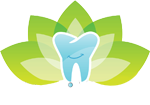Simple vs. Surgical Tooth Extraction: What’s the Difference?
Tooth extraction is a common dental procedure, but not all extractions are the same. Depending on the condition of your tooth and overall oral health, your dentist may recommend either a simple or surgical tooth extraction. Understanding the difference between these two procedures can help ease anxiety and prepare you for the best possible experience and recovery.
At Arlington Dental, we prioritize patient education and comfort. Here’s what you need to know about the difference between simple and surgical tooth extractions.
What Is a Simple Tooth Extraction?
A simple extraction is performed on a tooth that is fully visible in the mouth and has a relatively straightforward root structure. This type of procedure is typically done when a tooth is damaged, decayed, or loose but can be removed in one piece without complications.
How It Works:
- The dentist uses a local anesthetic to numb the area.
- Once numb, the dentist uses a tool called an elevator to loosen the tooth from its socket.
- Forceps are then used to gently pull the tooth out.
Simple extractions are most often used for:
- Severely decayed teeth that cannot be saved with a crown or filling
- Teeth that are damaged beyond repair
- Loose teeth due to gum disease
This procedure is typically quick and involves minimal discomfort, with recovery taking just a few days in most cases.
What Is a Surgical Tooth Extraction?
A surgical extraction, on the other hand, is more complex and is performed on teeth that:
- Have not fully erupted (such as impacted wisdom teeth)
- Have broken off at the gumline
- Have curved or multiple roots that make them difficult to remove
How It Works:
- Local anesthesia is used, and in some cases, sedation may be offered to help you relax.
- The oral surgeon or dentist will make a small incision in the gum to access the tooth.
- In some cases, the tooth may need to be sectioned (cut into pieces) for easier removal.
- If bone is blocking access to the tooth, a small amount of bone may be removed as well.
Surgical extractions are more commonly required for:
- Impacted wisdom teeth
- Teeth that have cracked or fractured beneath the gum
- Teeth with complicated root structures
Because this is a more involved procedure, it may require a slightly longer healing time and more aftercare than a simple extraction.
Key Differences at a Glance:
| Simple Extraction | Surgical Extraction |
| Tooth is visible above the gumline | Tooth is partially or fully beneath the gumline |
| Performed by a general dentist | Often performed by an oral surgeon |
| Local anesthesia used | Local anesthesia and/or sedation used |
| Quick recovery | Longer recovery and more care |
| No incisions | Incision in gum (and possibly bone removal) |
Recovery and Aftercare
No matter which type of extraction you undergo, proper aftercare is essential for healing. Here are general tips for both procedures:
Aftercare Tips:
- Rest for the first 24 hours after extraction.
- Avoid using straws, spitting, or smoking to prevent dry socket.
- Eat soft foods like yogurt, mashed potatoes, and smoothies.
- Apply ice packs to reduce swelling (especially after surgical extractions).
- Take prescribed medications or over-the-counter pain relief as directed.
At Arlington Dental, we provide personalized aftercare instructions to help ensure your recovery is smooth and comfortable.
When to Contact Our Dentist
It’s normal to experience some discomfort, swelling, and minor bleeding after an extraction, especially within the first 24 to 48 hours. However, you should contact our dentist if you notice:
- Severe or worsening pain
- Persistent bleeding
- Swelling that gets worse instead of better
- Signs of infection (fever, foul smell, pus)
Your oral health and comfort are our top priorities, and our team is here to support you every step of the way.
Choosing Arlington Dental for Your Tooth Extraction
Whether you need a simple or surgical extraction, Arlington Dental offers gentle, expert care in a friendly and professional environment. Our team will evaluate your specific needs with digital imaging and a comprehensive oral exam to determine the best course of action.
With advanced tools, modern techniques, and a compassionate approach, we make even the most complex procedures manageable and stress-free.
Final Thoughts
Understanding the difference between a simple and surgical tooth extraction helps you prepare for your procedure and make informed decisions about our dental care. If you’re experiencing tooth pain, damage, or have been told you need an extraction, don’t hesitate to contact Arlington Dental. We’re here to guide you through every step—from diagnosis to recovery—with skill and compassion.
Schedule your consultation today and let us help you achieve a healthier, pain-free smile.

